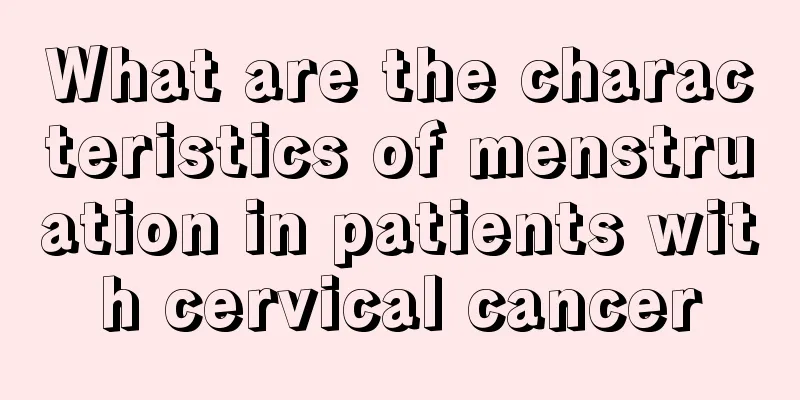Why are gynecological tumors getting younger? Should we pay attention to diet to prevent cervical cancer?

|
Women bear great responsibilities for the family and society. The reproductive system of women is the cradle of life and reproduction of offspring. As women live, the reproductive system also undergoes changes from infancy, adolescence, sexual maturity (childbearing age) to aging (perimenopause, menopause), and various diseases may also occur. Common malignant tumors in the female reproductive system are mainly cervical cancer, endometrial cancer and ovarian cancer. Cervical cancer (i.e. cervical cancer) can occur in the neck, lips and endocervical canal of the cervix. However, cervical cancer usually occurs at the junction of the two epithelia of the external cervical os, with more posterior lips, followed by endocervical canal, and then anterior lips. At first, cervical cancer is limited to the epithelial layer of the cervical mucosa and does not penetrate, which is called carcinoma in situ. When cancer invades the submucosal stroma, it is called invasive cancer. Gynecological cancers are becoming younger Gynecological tumors can occur at any age, but are most common between the ages of 20 and 50, and are becoming younger. Cervical cancer is the second most common malignant tumor in the world, second only to breast cancer, and ranks first among Chinese women. About 290,000 women die of cervical cancer each year in the world, of which about 50,000 die of cervical cancer in China, and the rate in rural areas is higher than in cities. According to experts, the subjects of the census and high-risk groups can be determined. Any woman who maintains sexual life should undergo a cervical cytology test once a year, and three consecutive normal tests can reduce the risk of cervical cancer. The following are high-risk groups: age > 40 years old; age of first sexual intercourse: < 18 years old; moderate or severe cervical erosion; disordered sexual behavior and poor sexual hygiene of the individual or spouse; male sexual partners with other cervical cancer; HPV and DNA tests are continuously positive; and those infected with genital warts or herpes simplex virus. Early cervical cancer in women is asymptomatic, generally manifested by vaginal bleeding and increased vaginal discharge. Vaginal bleeding can be manifested as contact bleeding, postmenopausal bleeding or irregular vaginal bleeding. Cervical cancer diet tips Diet is a simple and effective means of health care. Dietary care for cervical cancer has a certain preventive and inhibitory effect on cervical cancer. In the early stage of cervical cancer, it generally has little effect on the digestive tract function. It is mainly to enhance the patient's disease resistance and improve the immune function. This is the dietary care for cervical cancer. Nutrition should be supplemented as much as possible, and protein, sugar, fat and vitamins can be consumed reasonably. 1. Supplement B-carotene B-carotene will be converted into vitamin A, which helps protect the immune system from the attack of free radical molecules and has a significant immune-enhancing effect. According to scientists, the blood B-carotene of patients with cervical cancer is lower than that of the control group. B-The risk factor for cervical cancer is low intake of carotene. A-More animal foods are: animal liver and eggs. B-Spinach, rapeseed, amaranth, lettuce leaves, pumpkin and other plant foods rich in carotene. 2. Supplement trace elements zinc and selenium Zinc and selenium play a very important role in the production and function of immune cells. Scientific research shows that low levels of zinc and selenium in the body can lead to a low immune system. Cervical cancer is associated with trace elements zinc and selenium. The lack of these trace elements leads to a significant increase in the incidence of cervical cancer and breast cancer. It is particularly important to supplement zinc and selenium in the diet. Animal foods containing trace elements zinc and selenium include: oysters, fish, lean meat, animal offal, eggs, beef kidneys, pig kidneys, shrimps, etc. Eggs have the highest zinc content. Plant raw materials containing zinc and selenium are: edible fungi, seaweed, sesame, peanuts, wheat germ powder, nuts, etc. 3. Eat more soybeans and their products Such as tofu, soy milk, dried tofu, celery, broccoli, edamame, sweet peas and other vegetables. Since these foods can supplement phytoestrogens, the isoflavones and lignin contained in phytoestrogens are considered by scientists to have antioxidant effects. Phytoestrogens can inhibit the growth of cervical adenocarcinoma and squamous cell carcinoma, inhibit cell division, and effectively prevent the invasion or metastasis of cancer cells. 4. Eating snow clam frequently may cause cervical cancer There is more than one cause of cervical cancer, one of which is excessive estrogen levels in the body. Snow clam is the sex gland of female wood frogs, rich in estrogen, which can make the skin better, but long-term consumption can also increase the risk of cancer. We should be careful to supplement snow clam and propolis. |
Recommend
Can I put a Band-Aid on a wound in summer?
When you have a small wound on your body, you can...
Human kidney structure
For some people who study medicine and biology, t...
What to do if you cough up blood due to small cell lung cancer? Pay attention to these three points
Coughing up blood in small cell lung cancer is ca...
Which grains are the best for the stomach?
Everyone should know that among common foods, esp...
What are some ways to fall asleep quickly?
The quality of sleep has a great impact on the bo...
Solve 4 types of baldness with the right medicine
Only by treating the symptoms can you be “worry-f...
Blisters on toes
Blisters on toes are a painful and common problem...
How does periodontal abscess come about?
Periodontal abscess is also a type of periodontit...
Do you know these symptoms of lymphoma?
The main symptoms are swollen lymph nodes that ca...
What are the effects of Danhong injection
Danhong is actually a hybrid fruit introduced fro...
Will drinking brown sugar water make you fat? If you love beauty, you must know this
As we all know, drinking brown sugar water regula...
Is esophageal tumor serious?
Most people will be extremely worried when they h...
Is hot compress effective for eye fatigue?
Eye fatigue is a very common symptom in ophthalmo...
Tips to sleep without dreaming
Although dreaming while sleeping is a very normal...
How to eliminate physical fatigue symptoms
People who are physically tired need to pay atten...









